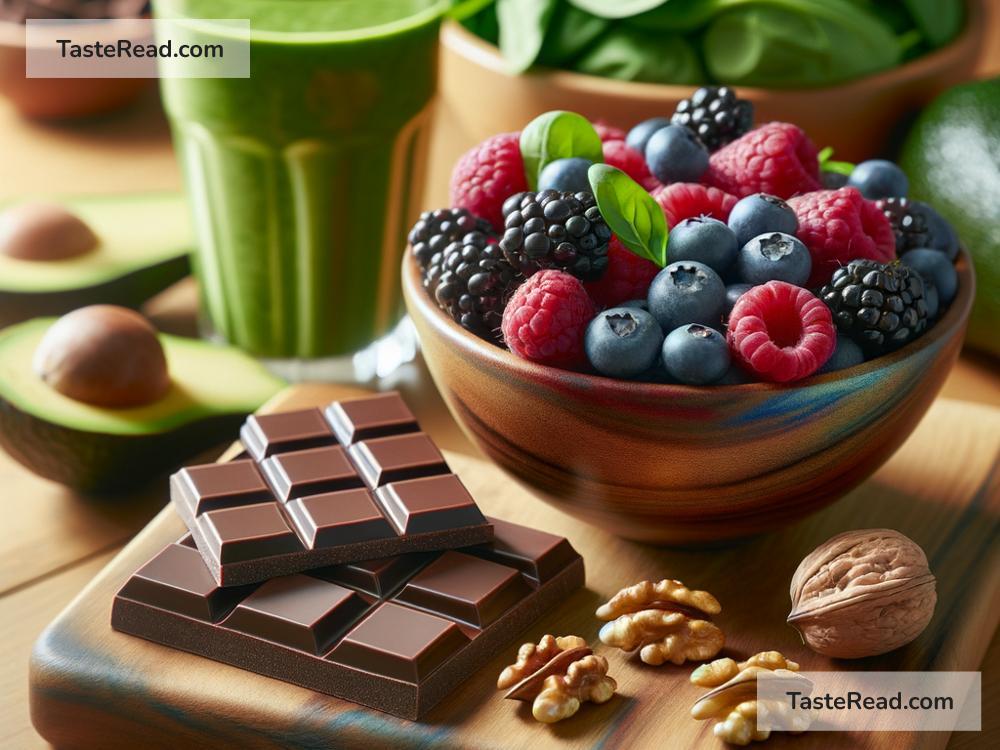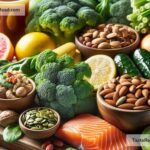Foods That Improve Cognitive Aging: Simple Ways to Boost Brain Health
Our brains are incredible organs. They help us think, learn, remember, and process emotions. But as we grow older, our brain health can start to decline. This is a natural part of aging, but the good news is there are ways to slow this process. One of the best ways to support brain health as you age is through the food you eat. Certain foods are packed with nutrients that can keep your brain sharp and help protect it from damage.
In this blog, we’ll explore some of the best foods for your brain and how they can improve cognitive aging. Don’t worry—this information is simple and easy to understand, so you can start making smarter food choices today!
What Is Cognitive Aging?
Before diving into the foods, let’s first understand what “cognitive aging” means. Cognitive aging refers to changes in memory, thinking, and learning abilities as we grow older. While some decline is natural, poor brain health can lead to problems like forgetfulness, slower thinking, and even serious conditions like Alzheimer’s and dementia.
The good news? Healthy lifestyle choices, especially eating brain-boosting foods, can help slow cognitive decline and keep your mind sharp.
Top Brain-Friendly Foods
Here’s a list of foods that scientists and nutritionists say can support cognitive aging and brain health.
1. Fatty Fish
Fatty fish, like salmon, mackerel, and trout, are rich in omega-3 fatty acids. These healthy fats are like “fuel” for your brain. Omega-3s help build brain cells and keep them healthy. They can also reduce inflammation, a key trigger for brain aging.
How to Add It to Your Diet: Try cooked salmon with veggies for dinner, or make a tuna salad for lunch. Aim to eat fatty fish 2–3 times a week.
2. Blueberries
Blueberries are small but mighty! These tiny fruits are packed with antioxidants called flavonoids. Antioxidants help protect your brain from damage caused by free radicals—unstable molecules that speed up aging. Studies have shown that blueberries may improve memory and delay brain aging.
How to Add It to Your Diet: Toss a handful of blueberries into your morning yogurt, oatmeal, or smoothie.
3. Leafy Greens
Vegetables like spinach, kale, and broccoli are full of brain-boosting vitamins. They’re rich in folate, vitamin K, and beta-carotene, which help improve memory and cognitive function over time.
How to Add It to Your Diet: Include a side of steamed broccoli with dinner or blend spinach into your smoothies. Salads made with kale or spinach are also great options.
4. Nuts and Seeds
Walnuts, almonds, sunflower seeds, and flaxseeds are excellent for brain health. Nuts, especially walnuts, contain omega-3s and antioxidants that fight inflammation in the brain. Meanwhile, seeds like flaxseeds and pumpkin seeds are packed with magnesium and zinc, which are important for memory and focus.
How to Add It to Your Diet: Snack on a handful of nuts or sprinkle seeds onto your yogurt, oatmeal, or salads.
5. Whole Grains
Whole grains, such as oats, quinoa, brown rice, and whole-grain bread, provide a steady supply of energy to the brain. They’re rich in fiber and vitamin E, which help protect brain cells from damage.
How to Add It to Your Diet: Swap refined white bread for whole-grain bread or try quinoa as a base for salads and stir-fries.
6. Dark Chocolate
Yes, chocolate can be good for your brain—specifically dark chocolate. It contains natural compounds called flavonoids, as well as caffeine, which can boost focus and memory.
How to Add It to Your Diet: Treat yourself to a small piece of dark chocolate with at least 70% cocoa a few times a week. Just avoid overdoing it, as chocolate is high in calories and sugar.
7. Avocados
Avocados are a great source of healthy fats that improve blood flow to the brain. They also contain vitamin E, which helps prevent cognitive decline.
How to Add It to Your Diet: Use avocado slices in sandwiches, salads, or make guacamole as a snack.
8. Eggs
Eggs are a good source of choline, a nutrient that helps produce neurotransmitters in the brain. Choline is particularly useful for memory and learning. Eggs also contain vitamin B12, which supports brain function.
How to Add It to Your Diet: Have eggs for breakfast—scrambled, boiled, or baked in muffins. They’re versatile and easy to prepare!
Tips for a Brain-Healthy Lifestyle
While eating these foods is important, it’s also helpful to combine them with other healthy habits to maximize your brain’s performance:
– Stay hydrated: Drink plenty of water to keep your brain functioning properly.
– Exercise regularly: Physical activity improves blood flow to the brain.
– Get enough sleep: Aim for 7-9 hours of good-quality sleep every night.
– Challenge your mind: Read, learn new skills, or play brain games to keep your mind active.
Final Thoughts
Cognitive aging is a natural part of life, but that doesn’t mean we can’t take steps to stay sharp. Eating the right foods is one of the most effective (and easiest) ways to improve brain health over time. Simple changes, like adding blueberries to your breakfast or incorporating fatty fish into your dinner, can make a huge difference in how your brain ages.
Start today by including some of these brain-supporting foods in your diet. Your future self (and your brain) will thank you!


